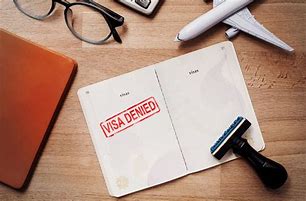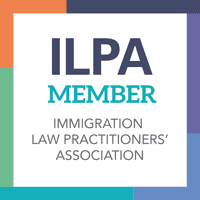
Immigration News, News, Students, Visas
5 common reasons your visit visa might be refused and how to overcome them
Visit visas are some of the most commonly and seemingly arbitrarily refused visas you can apply for. Here are the 5 top reasons the Home Office might refuse a visit visa and some advice on how to make sure this doesn’t happen to you.
1. The Home Office does not believe you will leave at the end of your stay.
This is one of the most common reasons for refusal. The Home Office may have concerns that you are using a visit visa in order to gain access to the UK in order to live. This is of particular concern to individuals from countries in conflict or developing countries who may struggle to convince the Home Office that they have a genuine intention to return despite standards of living in the UK being arguably higher.
You can help assuage the Home Office’s fears by providing evidence proving ties to your own country. This might include:
- letters from your employer confirming you will be visiting while taking annual leave, as well as confirming the date you will be returning to work.
- Evidence of dependents or family in your home country for whom you are financially responsible or for whom you are a carer.
- Showing your level of income, if you earn an above-average amount this may demonstrate a strong incentive to return.
- Evidence of the activities you are coming to do, including letters of invitation from family and friends, itineraries of tourist activities you intend to take part in and evidence of hotel bookings.
If you can demonstrate you have a good quality of life in your home country, which is likely to be preferable to living as an illegal migrant in the UK with no right to work or study lawfully, then this reduces the chance of having your visa refused for this reason. If you have applied for previous visit visas and stayed longer than you stated you would, even if you didn’t overstay, you should take care to explain this.
2. The Home Office is concerned about your poor immigration history or the poor immigration history of your known family in the UK.
When you apply you will be asked if you have any connections to the UK. Whether you are coming to visit family or not, the visa status of any family residing in the UK will be considered alongside yours. If you have family members with a history of poor visa history then the burden of proof will be on you to demonstrate that you are different. Attempts to conceal family members with poor history are inadvisable and if found out will certainly lead to the refusal of your visa and potentially more serious consequences.
The Home Office may contact family members or friends in the UK so it is wise to discuss your application with them beforehand and make sure there are no inconsistencies between the information you give the Home Office and the information they give when questioned. Make sure that they are aware of all facts as they appear on your application to avoid a refusal for an innocent error.
You should also consider adding evidence to your cover letter explaining why you do not want to live in the UK if you have friends and family resident here, as the Home Office may be suspicious that your real intent is to move here to join them.
If you have any poor immigration history of your own you should also be sure to provide a robust explanation and evidence that you have changed and do not intend to repeat this.
3. The Home Office is not satisfied you have enough money to fund your stay.
This can be a difficult one because the Home Office does not give an exact figure you must hold in order to satisfy this requirement. Instead they take a holistic approach, taking into account financial responsibilities you have in your home country (rent, mortgage, dependents etc) as well as the length of stay, where you will be staying and what activities you will be doing.
It may be helpful to provide a detailed, costed, itinerary explain what costs you expect to incur and how you will cover them with the funds you hold. If you will be staying with family or friends who are not expecting you to pay then you should provide letters confirming this.
You should provide bank statements showing your funds and that you have held them for a reasonable period of time but be careful to explain any potentially suspect looking deposits, as the Home Office will be suspicious of unexplained money.
3rd parties are also able to provide sponsorship if they have a genuine professional or personal relationship with the applicant and will be legally present at the time the visitor enters, however they may have to provide an undertaking to pay back any public funds the visitor claims.
4. The Home Office believes you may intend to do a ‘forbidden’ activity.
There are a number of activities you cannot carry out in the UK while here on a visit visa, and these may be specific to the type of visit visa you apply for. For instance you may get married if you are here on a Marriage visa, but not on any other form of visit visa.
If the Home Office has suspicions that your intentions in coming to the UK fall outside of your category of visa they are likely to refuse it. You should take particular care to demonstrate that you do not intend to work here. If you are here on a Permitted Paid Engagement visa you should ensure the evidence provided clearly shows that the engagement you are here to perform does not fall outside the strict rules governing accepted paid engagements.
Be sure that the category of visa you are applying for matches what you intend to do, and provide evidence and explanations of how your visit will comply with the category-specific rules.
5. The Home Office has concerns about the veracity or consistency of evidence provided.
When making a visit visa application the general rule is the more supporting evidence the better, however it is important to ensure that all your evidence is consistent. Here are some common areas to beware of.
- Make sure your financial evidence lines up. If you have stated your salary elsewhere, make sure your bank statements match your salary. If they do not, provide a robust explanation in your covering letter.
- Make sure information you have provided in your application can be corroborated by witnesses and be prepared for the Home Office to approach your friends and family. Make sure they will be giving the Home Office information which is wholly consistent with each other as well as other information you have provided.
- Do not be tempted to gloss over undesirable aspects of your immigration history or any criminal history, or to falsify documents. The use of any deception will result in both the refusal of your visa as well as a 10 year ban. It is not worth the risk.
If you would like to apply for a visit visa, it is always best to seek professional help. Contact us for a consultation at [email protected] or on 01403 801 801.












